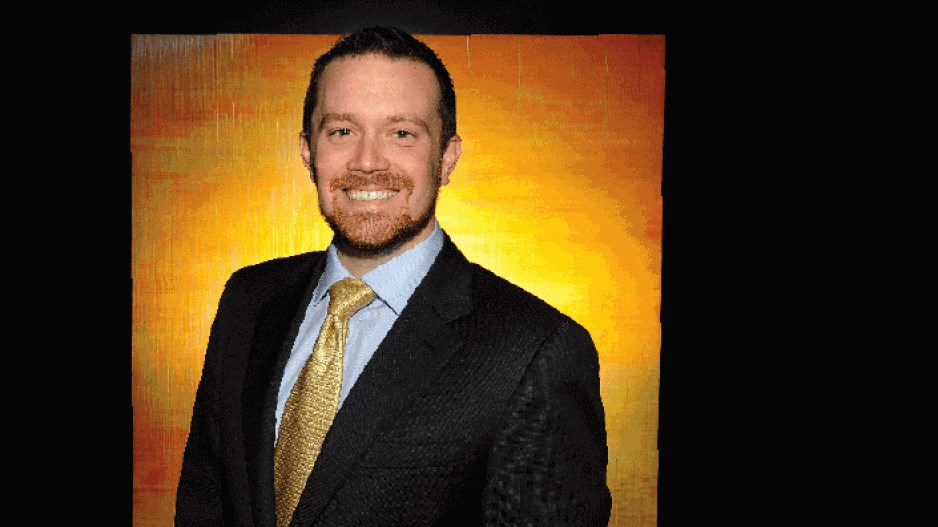BC resource companies considering charities should donate to those that are local, have low administration costs and are supported by the donor company's employees, according to several firms in the resource industry.
They should also ensure that if they are public, the donations serve shareholders' interests in order to reduce the risk of being sued, said one CEO.
Nolan Watson, president and CEO of Sandstorm Gold, said when he first entered the business world he looked around for charitable organizations but was disturbed by what he found.
"I got fairly frustrated with the amount of money that the average [charitable] organization was spending on salaries and administration," said Watson. "Even with organizations that said '90% of your money goes to the end cause,' I was able to go into their financial statements to find that they are spending 45% of all donations on salaries."
"I'm not quite sure how you convince yourself that salaries paid to a person sitting in Vancouver is somehow the end cause of an orphanage in Africa, but in my mind it isn't," Watson said. Despite that depressing discovery, he still believes mining companies have more reasons than any other companies in the world to donate to good causes.
"They need to focus on making sure the communities around their projects are better off, to gain support from their communities and to assure that they as companies are a net benefit to those communities," he said.
"They need to ensure that the company and those mines have the support of the political leaders of those local communities so that they can run a mine effectively, keep their permits, not get their assets expropriated, not get their mine vandalized or blown up. These are all things in the best interests of both the community and the shareholder."
Watson stressed that doing things in the best interests of shareholders is more than a platitude; it's the law. A few years ago, the Supreme Court of Canada found in ruling on a shareholder suit that companies cannot just give to any old cause but must show the donation serves the prime shareholder interest – making money, he said.
Ultimately, Watson and his wife decided the best way to use their time and money was to set up their own charity, Nations Cry, a humanitarian organization focused on improving organization in the developing world. It is currently helping to build a secondary school in Sierra Leone, a West African country where Sandstorm has worked.
"We decided to start an organization that is small and grassroots and will never get huge. It will not have any salaried employees, and [instead] our friends and co-workers will do the administration ourselves and just pour money into things that matter."
Giving to local causes is an important criterion for one of B.C.'s major fish-farming companies, which allocates about $150,000 of its annual budget to corporate giving.
"Our company's giving is based on our support to First Nations, education, arts and culture, and sports and health and well-being," said Marilyn Hutchinson, director of sustainability and growth for Grieg Seafood BC Ltd.
"Decisions are based on [various factors] including the area, primarily northern Vancouver Island and the Sunshine Coast, other contributors, the benefit to the community, involvement of our employees with the applicant such as being coach of a team, volunteer at the event or member of a committee leading the fundraising," she said.
The company donates to service clubs, hospital and community foundations, First Nations sports teams and elder groups, and schools and universities, including for scholarships and bursaries, among other causes. The largest amount allocated every year is for four volunteer-run salmon enhancement societies.
Forest company Weyerhaeuser has a well-established process for entertaining requests and allocating charitable donations that relies entirely on local input, said company spokesman Wayne Roznowsky. Local committees made up of employees and managers or in some cases leadership groups decide who is chosen to receive funding and how much.
"We open for submissions in January and close it off in August," he said. "Our allocation is based on a 'per employee' basis, so if we have 100 employees in a particular community the amount will be based on that."
Roznowsky said the Washington state-based company favours charities supporting education, shelter for people and environmental stewardship, among others. Allocations for charitable donations are kept separate from funding for sponsorships including business events such as those of the local chamber of commerce.
He said he is ultimately responsible for determining if the charity's values align with those of the company but said the company is well aware of the practices and philosophies of the charities it supports.
Doug McIntyre, media relations spokesman for Encana, a leading oil and natural gas producer, said his company's community investment programs are aligned to promote environmental stewardship, enhance skill sets of the next generation and support the needs of its communities.
"We support employees' efforts through matching gifts and offering a volunteer program, which provides grants to organizations where our employees volunteer their time," McIntyre said. During the Encana Cares annual campaign, held every October, employee contributions are matched dollar for dollar toward their favourite charities. Major charities Encana supports includes the BC Cancer Foundation, the End Violence Association of BC and the Minerva Foundation.



